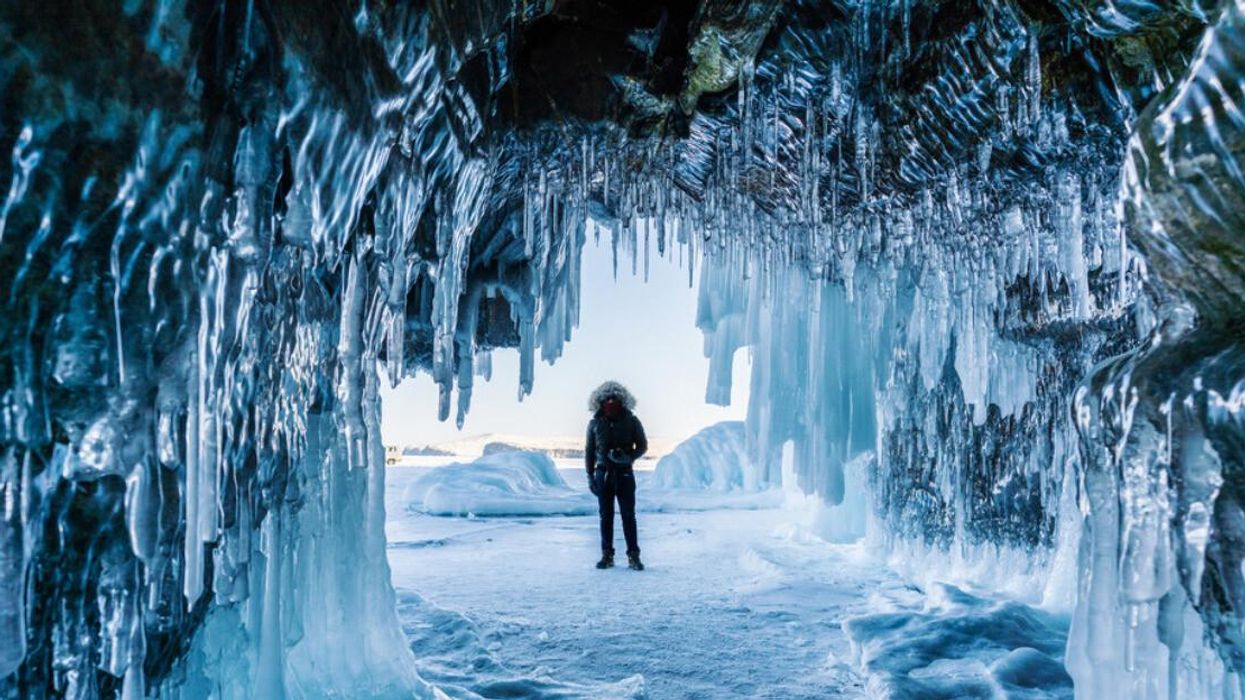A 'Zombie' Virus Has Been Revived After Nearly 50,000 Years In Siberian Ice & Seriously WTF
Do these scientists not watch movies?

A person investigates an ice cave in Siberia.
Scientists say they've successfully revived a "zombie" virus that's been frozen in the permafrost of Siberia for nearly 50,000 years, in a move they say should come as a warning to everyone.
It's also giving us 28 Days Later vibes because this sounds like the plot of dozens of zombie movies.
Nevertheless, researchers with the French National Centre for Scientific Research say they've successfully reanimated a virus thought to have become frozen in ice over 48,500 years ago, according to a pre-print version of their research.
There's no indication in their study that the virus will turn people into brain-eating monsters, or that it's a threat to humans at all. The "zombie" just refers to the virus waking up and becoming infectious again.
Still, the researchers say their work is proof that we need to watch out for other ancient viruses that might be frozen in the Arctic ice because there's a chance that climate change could thaw them out and unleash them on humanity some day.
"The situation would be much more disastrous in the case of plant, animal or human diseases caused by the revival of an ancient unknown virus," they write in the paper.
"It is therefore legitimate to ponder the risk of ancient viral particles remaining infectious and getting back into circulation by the thawing of ancient permafrost layers."
The researchers say they actually revived 13 different viruses found in Russia, including the oldest specimen found beneath a lake. They had to mess around with the viruses a bit to make them viable again, but they say the fact that it's possible should put us on alert.
"One could imagine that very deep permafrost layers (i.e. million-year-old), such as those extracted by open-pit mining, could release totally unknown pathogens," they write.
It's not the first time that a millennia-old virus has been brought back, but this could very well be the oldest one ever resurrected.
The study authors also say that past research has "wrongly" characterized these "zombie viruses" as not being a public health threat, whereas their new paper is out to "restore an appreciation closer to reality."
They admit that it's unclear how long ancient viruses would survive if they were exposed by melting ice, but the "risk is bound to increase in the context of global warming."
The research has yet to be peer reviewed and published.